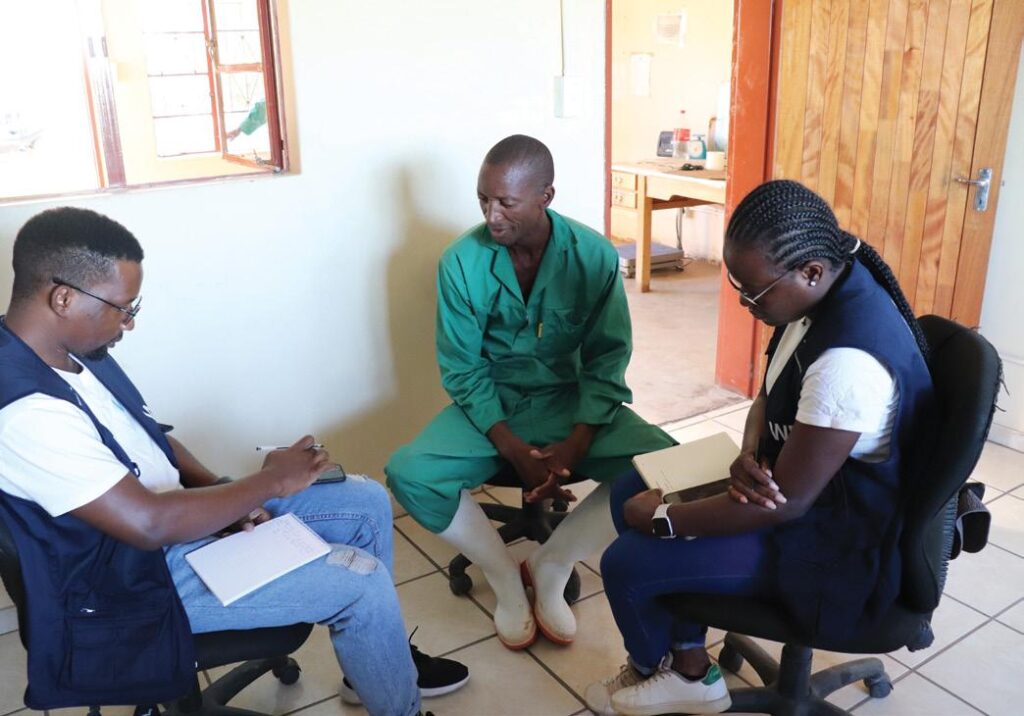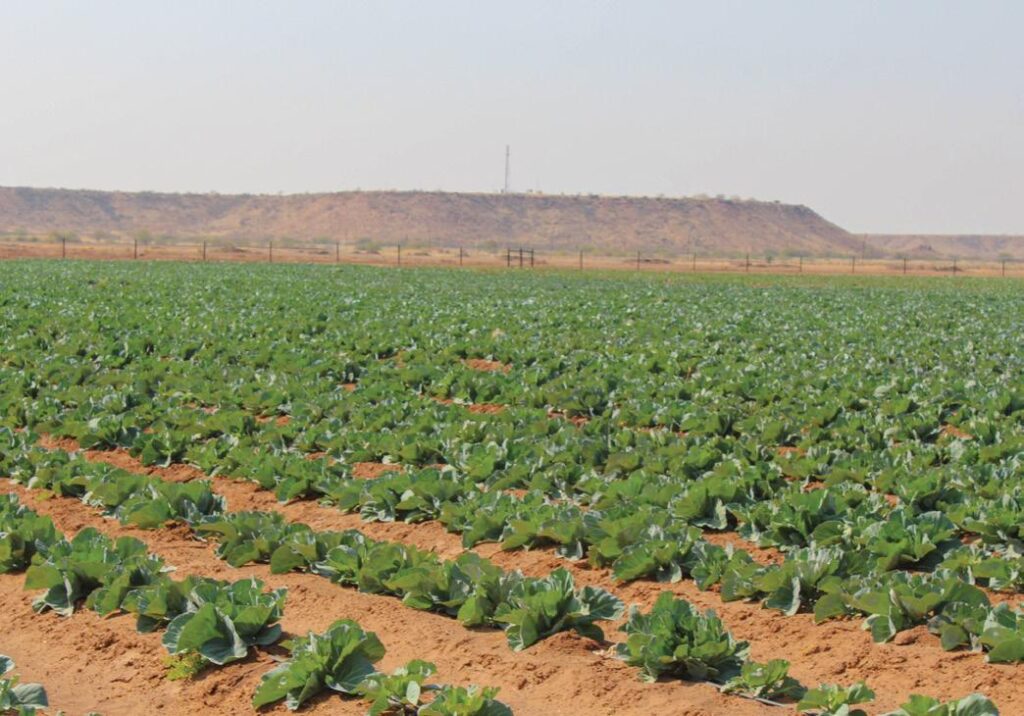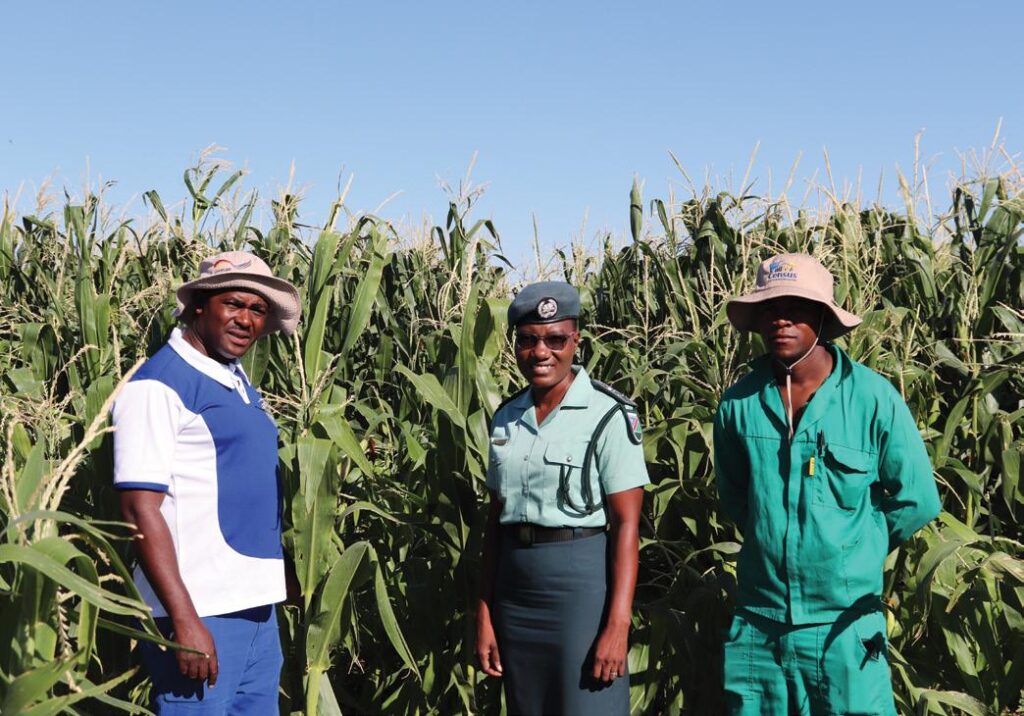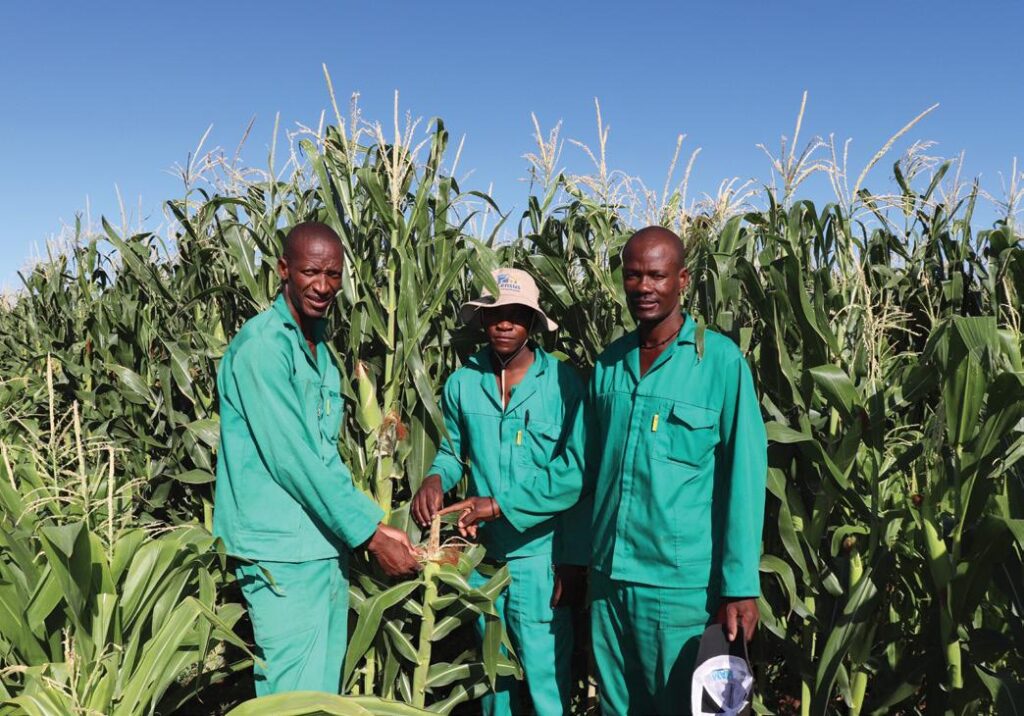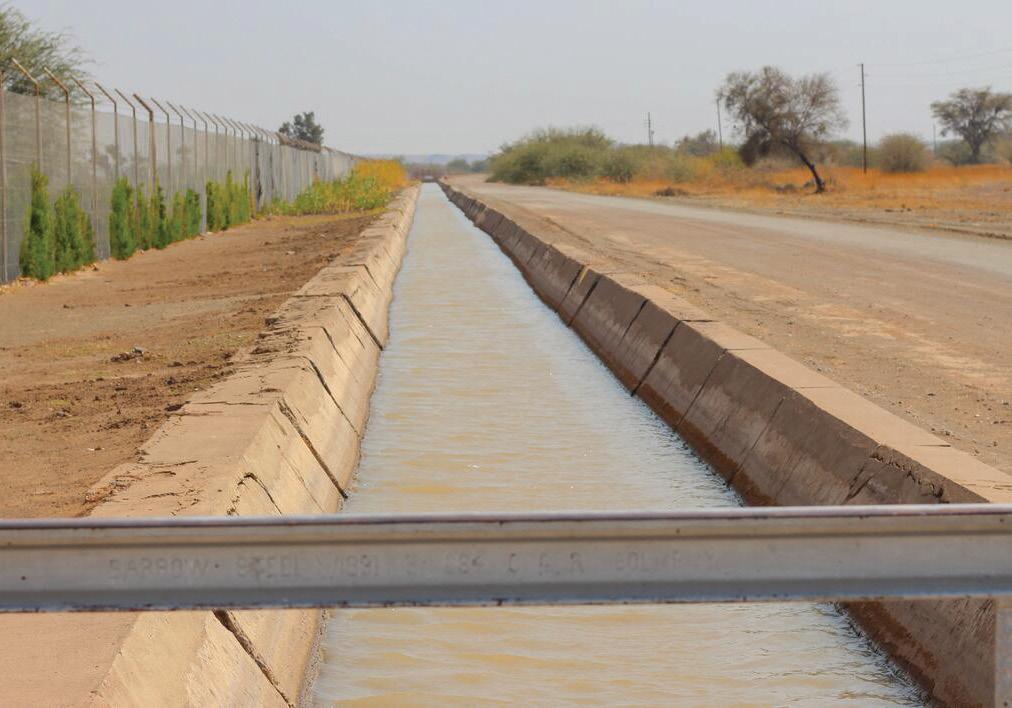In the heart of Namibia’s Hardap Correctional Facility, something extraordinary is growing. It is not just the zucchini, sweet melons or pumpkins, but also the lives of the ofenders who plant and harvest these crops. What began as a small-scale agricultural project has blossomed into a groundbreaking initiative that not only contributes to food security but also plays a crucial role in rehabilitating ofenders, equipping them with life-changing skills for reintegration into society.
The project, a collaboration between the Namibian Correctional Service (NCS) and the World Food Programme (WFP), began in 2021 with the goal of enhancing food systems while providing agricultural training to ofenders. For the frst time in Namibia, ofenders are growing crops that are not typically cultivated in the country, like zucchini and sweet melons, which are now available on grocery store shelves in Windhoek. Through this partnership, the WFP has invested in climate-smart agricultural infrastructure, helping NCS optimise production and create a self-sustaining farming operation.
Forty-three-year-old Jeremia, an ofender at Hardap Correctional Facility, is one of the pioneers of this project. With a smile and a sense of pride, Jeremia recalls his childhood growing up on a farm, which sparked his passion for agriculture. He was a student at an agricultural primary school in the Erongo Region, and now, as part of this transformative project, he is making history. “I am known to have made history in this facility,” Jeremia says with a smile. “I was the frst person to put seed in the ground here, and now we are growing zucchini, sweet melons, pumpkins, butternuts, cabbages and watermelons – all for the correctional facility’s kitchen and the market.”
The success of this initiative is evident. In its first year, the project cultivated 3.4 hectares of land, producing 32 tonnes of butternuts, 12 tonnes of pumpkins, and over 50,000 heads of cabbage. By the 2023-2024 farming season, the project had expanded to 6.8 hectares, yielding equally impressive results. The fresh produce is not only benefitting the correctional facility, but also reaching old-age homes and orphanages across the country, contributing to the nutritional needs of vulnerable communities. “My happiest day is when we harvest,” Jeremia says, his eyes gleaming with pride. “I feel very proud to eat food that I have grown myself.”
“In a place often associated with punishment, a new hope and transformation are taking root.”
For Deputy Commissioner Dolly Hamutenya, who oversees the farming operations and the training of offenders, the project is as much about rehabilitating lives as it is about producing food. Hamutenya, who holds a degree in agriculture, speaks with passion about the training process that is transforming offenders into skilled agricultural workers. Every day, she leads sessions on soil preparation, transplanting and fertilisation – skills that the offenders will carry with them when they re-enter society. “It’s a privilege to contribute to food security and to help shape offenders into individuals who can re-enter society with valuable skills,” says Hamutenya. “The highlight of my day is when I walk into major retailers like Food Lover’s Market, SPAR or Metro, and I see customers picking up produce from our farm, knowing it was grown right here at the correctional facility.”
This agricultural initiative is more than just a farming project; it is a rehabilitation programme designed to prepare ofenders for life after release. Although they do not receive formal certifcates, ofenders are given testimonials that recognise the agricultural skills they have gained, helping them fnd work or start businesses once they are reintegrated into society.
For Jeremia, the dream does not end here. “My dream is to learn more about agriculture and start my own farm after I am released, because I want to build a better future for myself and my society,” he says, with determination in his voice.
The WFP’s partnership with the NCS is an example of how innovative projects can bring about real change. In a place often associated with punishment, a new hope and transformation are taking root. Through this collaboration, ofenders are learning new skills, restoring their self-worth and contributing to the country’s food security. What began as a small farming initiative has grown into a beacon of opportunity, ofering a second chance to those who need it most. As the next phase of the project begins, with plans to expand production, diversify crops and involve more ofenders and community members, the WFP is helping to sow the seeds for a better future – one that nurtures the land, rehabilitates lives and brings hope to the most unlikely places.
Maggie Forcelledo Paz
